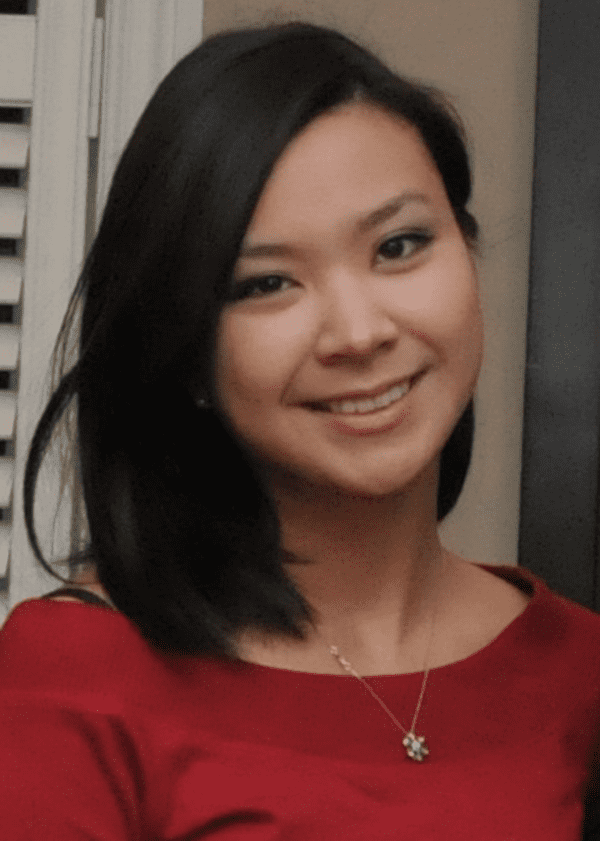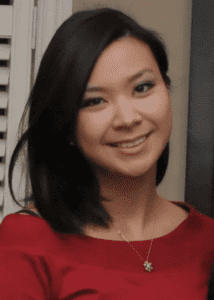Emerging Author of the Month: Mia Herrera

Diaspora Dialogues
February 3, 2014


Tell us about yourself.
I love to travel, learn, read, drink lots of coffee, and spend time with my family. I studied English Literature, Book and Media Studies, and Cinema Studies in university, which was a blissful period of reading and happiness for me. Since graduating, I became a Certified Associate of Project Management, obtained a certification in adult education and staff training, and am currently working towards my Project Management Professional designation and Certificate in Human Resources Management. I’ve worked many jobs, from being the person who calls homeowners to confirm they received their complimentary Yellow Pages telephone book to working as a creative writer for video games. I am currently working in the Corporate Communications Bureau of my local police service, and I hope for a long career in law enforcement in the years to come. Many of the things I do are often in response to the question, “Why not? ” Why not hop on a plane, train, or motorcycle? Why not learn something new? Why not embark on a new adventure? With all that being said, and despite my insatiable thirst to do everything while I can, a couple of things remain constant in my life: my family and my writing. In this long and winding journey, the latter is likely why I’m featured in Shorthand this month. My fiction has appeared in publications such as TOK: Writing the New Toronto—Book 7 and the Hart House Review. I have been lucky enough to receive the Tatamagouche Scholarship for Young Writers, a Writers Trust Fund Scholarship to attend the Humber College School for Writers, and be featured on CBC Radio and in the Markham Economist and Sun. An excerpt from my current work is featured in Shorthand this month.
Tell us about the piece you’ve decided to share.
The piece I am sharing is an excerpt from my novel, Shade. Shade follows a young woman named Benedictine Manlapaz on her trip to the Philippines for the first time—the place where her parents immigrated from. Benni, who was born and raised in a small town in Ontario, embarks on a two-week vacation with her mother to visit her father, who recently moved to the Philippines, and relatives, whom she has never met. Benni arrives to find a completely different world of wealth and luxury and is forced to confront her family’s secrets.
The excerpt provided shows Benni and her father at a bar in the island paradise of Boracay. As this excerpt shows, the trip to the Philippines opens Benni’s eyes to things she previously ignored, including her father’s alcoholism.
When and why did you realize you had a passion for writing?
I’ve loved writing for as long as I can remember. One of my earliest memories involves drawing looping circles across a page and presenting it to my mother as a love note. No one understood the scribbles but me. After that, I learned to spell by writing epistles of our family trips and recording my dreams in a dream journal. Since then, I’ve dabbled in poetry, screenwriting, and fan-fiction, but my heart has always belonged to fiction. I cannot do without writing, even if my writing is only reserved for a sentence a day in reflection and the rest is left for endless lists of things to do. Writing keeps me organized and sane.
What pieces of writing/authors have had the greatest impact on you?
I’ve grown up admiring strong female writers—pioneers of fiction and authors of classics such as Jane Austen and Frances Burney. I also have a deep love for L.M. Montgomery. Her stories manage to be sweet, heart breaking, simple, and complicated all at once, and they have stayed with me from adolescence. I also have a deep appreciation for authors like Deanna Fei who wrote A Thread of Sky. I admire authors who can uniquely portray the hybrid life of diverse women and men living in North America without falling into the traps of cultural stereotypes. There have been so many narratives outlining the immigration story that I am interested in seeing the narratives that come after—stories of second—and third-generation immigrants such as myself and how lives are lived in between.
Each of my writing mentors has also greatly impacted me. Gwen Davies saw enough in me to offer me a scholarship to the Tatamagouche Centre, where I began my book.Sandra Birdsell encouraged me to persevere with one lasting comment that said she believed in me. David Layton taught me—among many things—that in order to write my best book, I first had to learn more about myself. I am extremely grateful to these guiding hands that helped me develop into the writer I am today.
What kind of writer do you aspire to be?
I aspire to be the kind of writer that keeps writing. I read somewhere that the difference between a good writer and a bad writer has nothing to do with skill, but with perseverance. It’s easy to push writing aside when life gets busy and people around you don’t always understand the compulsion to write. Writing is one of those things that I need to watch so that it doesn’t get endlessly pushed to the bottom of my to-do list. It has been so important, and has gotten me through so much, that I hope it always remains a big part of my life—not only a small piece of me that I forget along the way. Thankfully, I doubt this could happen even if I tried. If I don’t write, I get grumpy, so it’s really in everyone’s best interest for me to do so.
How and when do you find time to write?
I schedule in my writing. I only have evenings and weekends free after work—evenings and weekends that must also be shared with school and family activities. As a result, I pen writing into my agenda and make sure it’s included on my list of things to do—as important as work, school, or time with the family. Being part of the Diaspora Dialogues program really reinforced the wonders of a deadline for me. As a result, I set deadlines, write them in my calendar, and get down to it. My partner is a shift worker as well, so I usually do all the solitary things on my list of things to do when he’s working evenings or weekends. Otherwise, since he’s an early sleeper and I’m a night owl, I use the silence of my household between 11 p.m. and 1 a.m. to get my thoughts down on paper.
